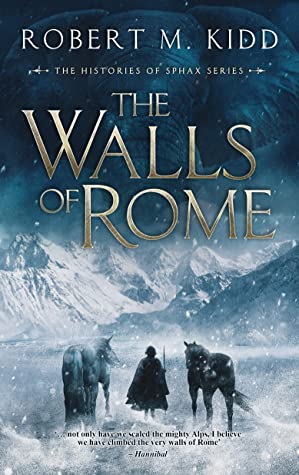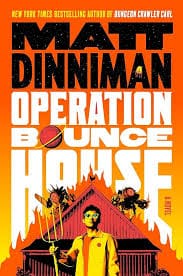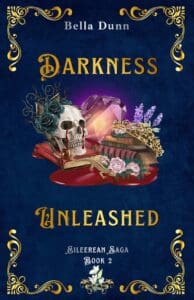Rating: 8.0/10
Synopsis
218 BC. Sphax is seventeen and haunted by the brutal murder of his parents at the hands of Rome. After ten years of miserable slavery he will make his last bid for freedom and go in search of Hannibal’s army and his birthright. He will have his revenge on the stinking cesspit that is Rome!
Destiny will see him taken under the wing of Maharbal, Hannibal’s brilliant general, and groomed to lead the finest horsemen in the world – the feared Numidian cavalry that would become the scourge of Rome.
From the crossing of the great Rhodanus River, Sphax’s epic journey takes him through the lands of the Gaul to the highest pass in the Alps. This is the story of the most famous march in history. A march against impossible odds, against savage mountain Gauls, a brutal winter and Sphax’s own demons.
This is more than a struggle for empire. This is the last great war to save the beauty of the old world, the civilized world of Carthage, Greece and Gaul. The world of art and philosophy – before it is ground into dust by the upstart barbarity of Rome.
Review
The Walls of Rome is a fascinating insight into the legend of Hannibal’s army that crossed over the Alps and became Rome’s worst nightmare. It is a good preview of displaying just how many treacherous Gallic tribes he had to deal with in the first place. The journey to Rome was fright with wonder, peril, and diplomacy. Half this novel pertains to diplomatic measures often and you will see our hero, Sphax, engage on such missions. This will entail fighting, glorious stories, and much more that I don’t wish to spoil. It’s a good historical novel that is for sure, and there is plenty of immersion showing Sphax’s integration into the army of Hannibal Barca. At times, you begin to feel like you’re a part of the army, and then you’re on Hannibal’s journey before you know it. The battle scenes are well written, and I’ve never seen an author describe Numidian cavalry tactics in detail (With well-written prose because the Numidians were essentially javelinmen on horses that were capable of cutting down infantry as long as they did not go too close to the enemy. They were basically like the Horse Archers of Parthia for comparison. The Numidians were well feared and often used by Hannibal in his campaign against Rome)
The worldbuilding is immersive enough to convince you that you are in the world of 218 BCE. There’s as much differentiation between say, you could be in Italia, and raised in a village near Arretium. You would perhaps, never travel to the city of Rome for your entire life. I like that the author did this distinguishing. Each province, region, each land where you go feels unique. The description of these lands is well written. There’s a lot of cheese and bread in this novel along with olives (So much so I wonder whether the staple of the Ancient World for ordinary people was just that). Sphax has suffered a horrible childhood, and now is running away from his Roman Masters, and through his eyes, we get to see him witness a world of so many nationalities that you would be shocked to discover it. Because Rome in its early Republican days was bordering the Iberian tribes, the Illyrians, the Carthaginians, the Greeks (of which there are many envious Greeks in this novel) the Gauls. None of these civilizations were stupid enough not to realize that Rome’s ambitions were going to swallow them whole. Nothing could stop the power of Rome’s consuls for that matter.
Along the way, Sphax encounters Fionn, who was a really good character in my opinion. She was the counter-balance to Sphax, and I felt that her character didn’t have enough scenes to fully develop what I needed too as a reader, to feel close. I wished there had been more of Fionn in this novel, and I liked characters such as Gisgo, Maharbal, Merbal, and Idwal. I think Idwal and Sphax’s chemistry was well developed, because Idwal is the Son of the Chief of the Cavari tribe, and he is an educated Gaul, who joins Hannibal’s army despite his father’s objections. Why do you say? Because his mother was Greek. Fun fact: The Gauls did regularly meet with Greeks, traded, thanks to a city called Massilia which is now located in the Province province of France. There were many Gauls at that time that wanted to change and unify Gaul, but they couldn’t because petty rivalries between bickering tribes ultimately led to the Romans doing Divide and Conquer. Idwal realizes this, and we get to see a different leader, a man that given the right intentions, the right connections, could do more.
Moving onwards, there’s a ton of good things in this novel. I don’t wish to spoil everything. Historical accuracy and historical authenticity-wise, I feel the author has done his work well. Some parts I did not understand however when Sphax praises Baal-Hammon often, I wonder if he would have worshipped any Numidian Gods or Goddesses. At times I felt the narrator wasn’t letting us get to the characters, and there was always this distance. I think Sphax went into a trap of also sometimes glorifying himself a little too much, and while he is intelligent, clever, I do feel that the writing sometimes went too showing, then went back to tell at times. I would have wanted an equal balance of the two. The pacing was fine in my opinion.
Overall if you want to see how Hannibal became Rome’s worst nightmare, then this book is for you. You will enjoy it. I would have wanted a glossary at the end and some notes on how the author did historical research because I love those a lot after finishing a historical fiction novel.





Leave a Reply